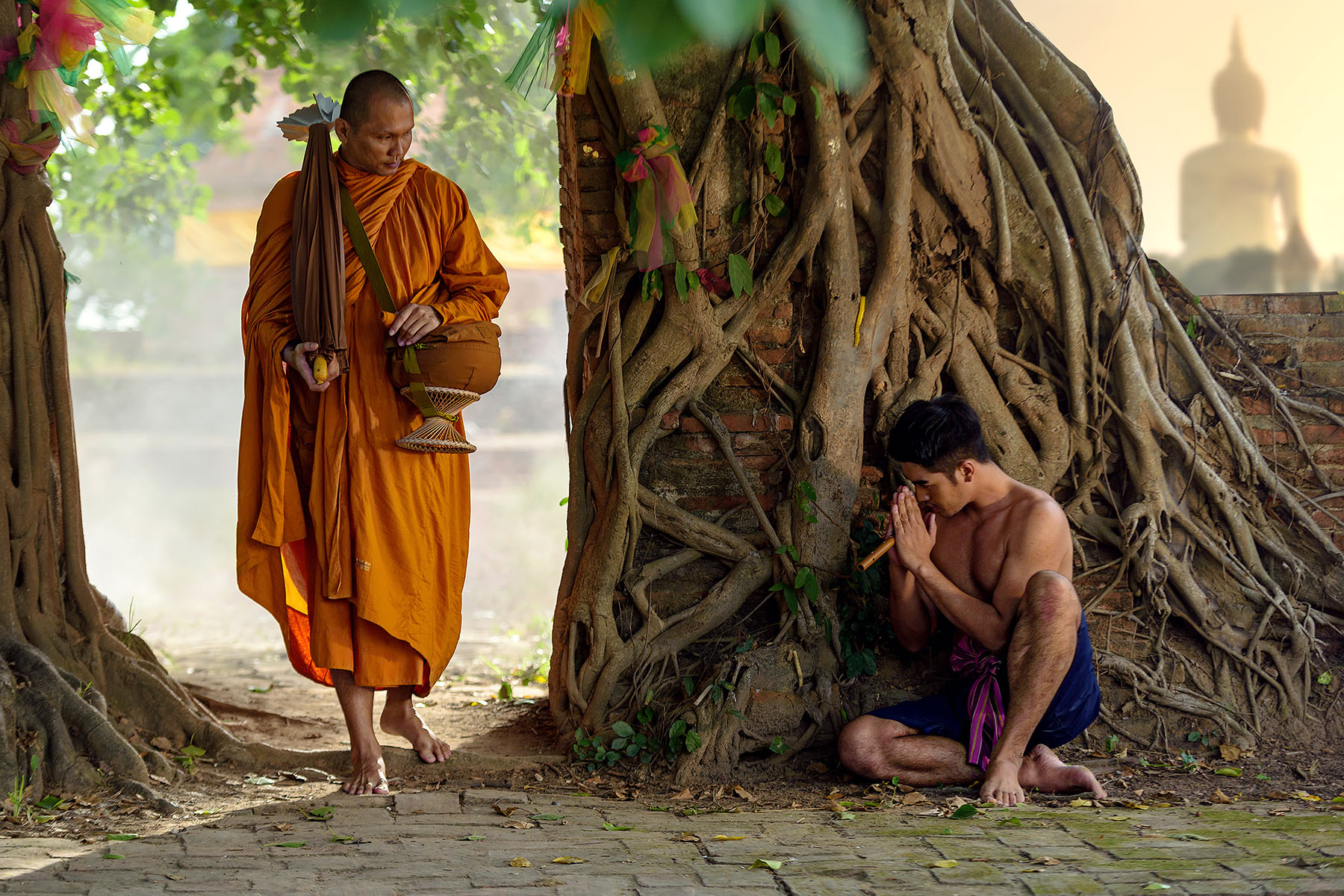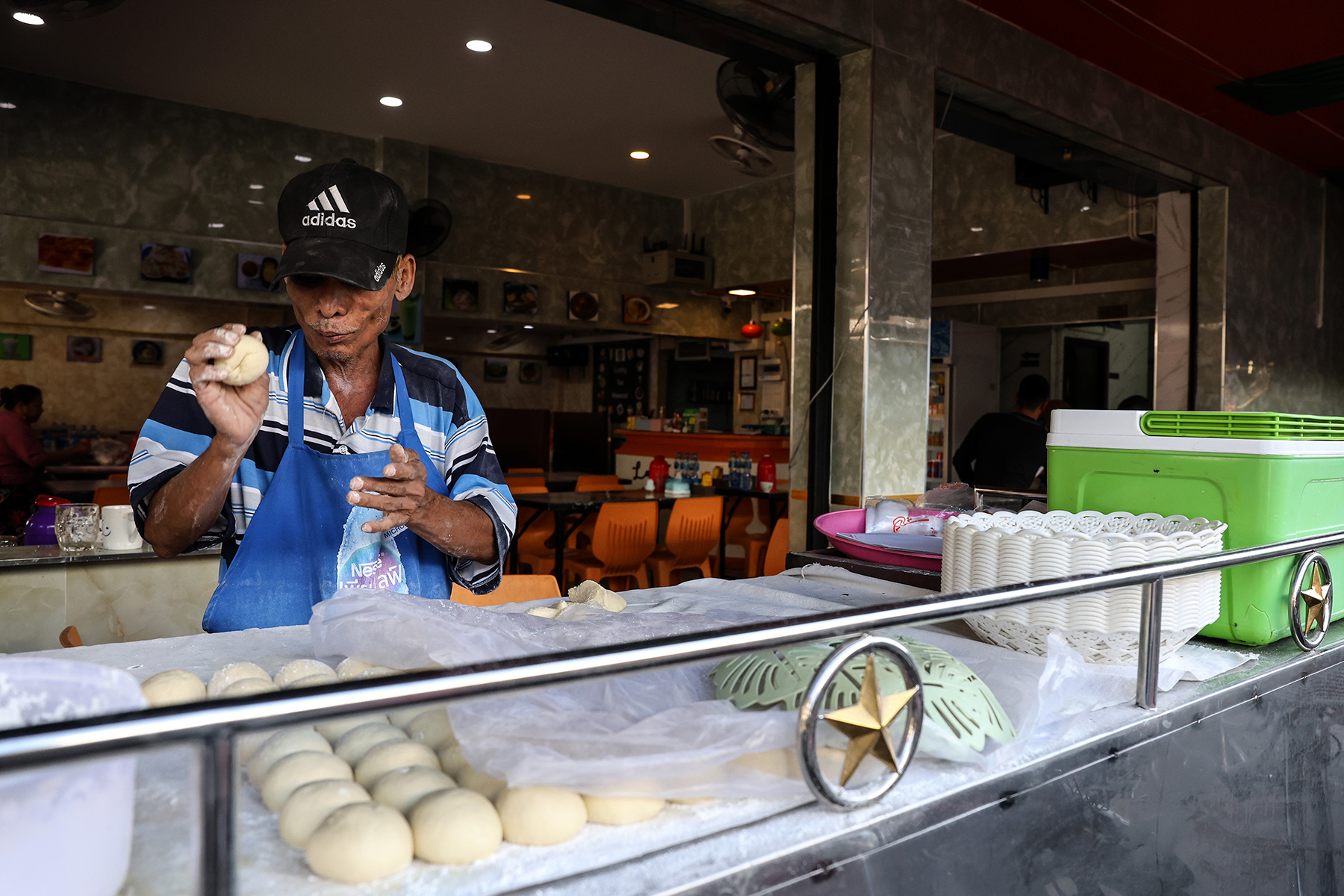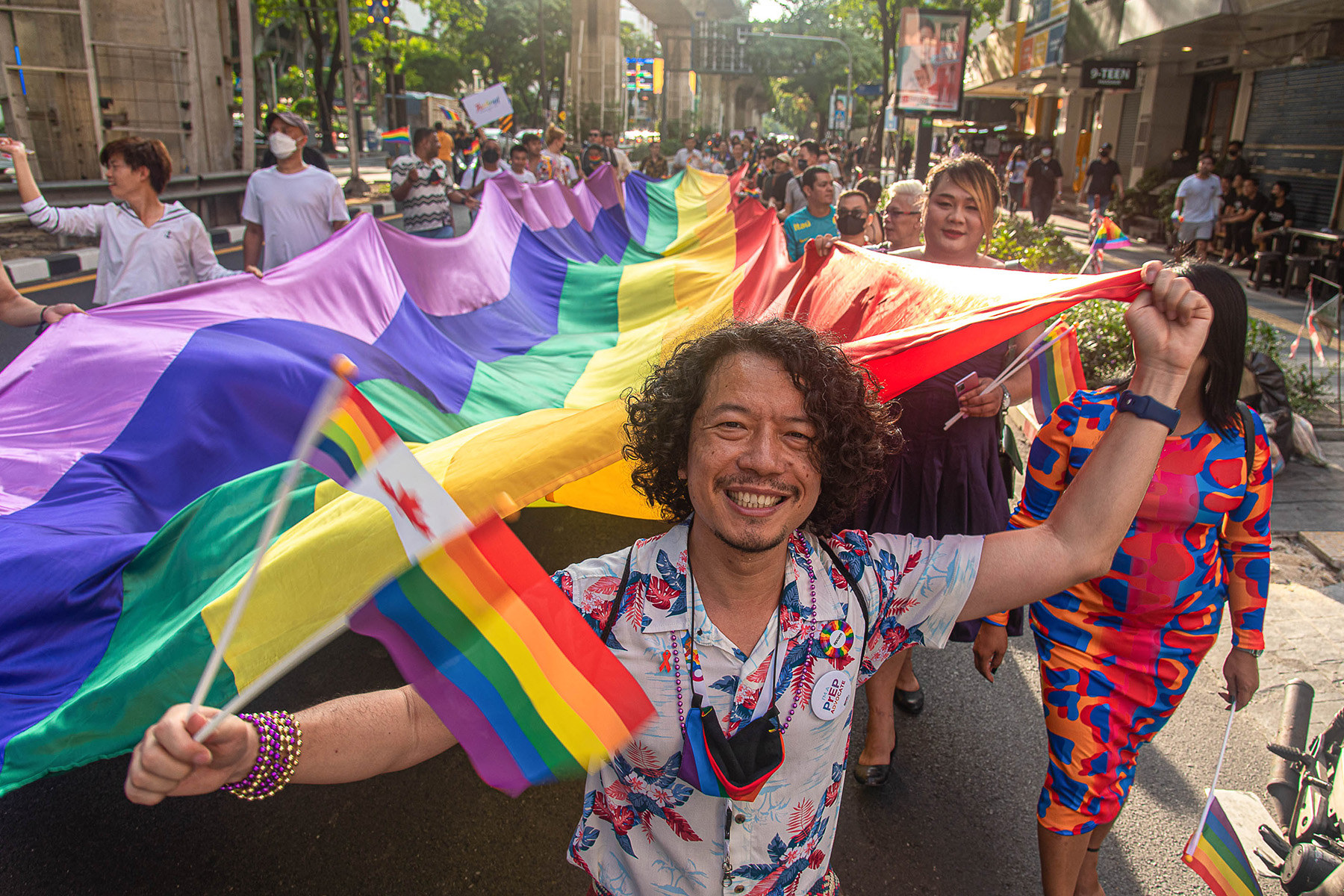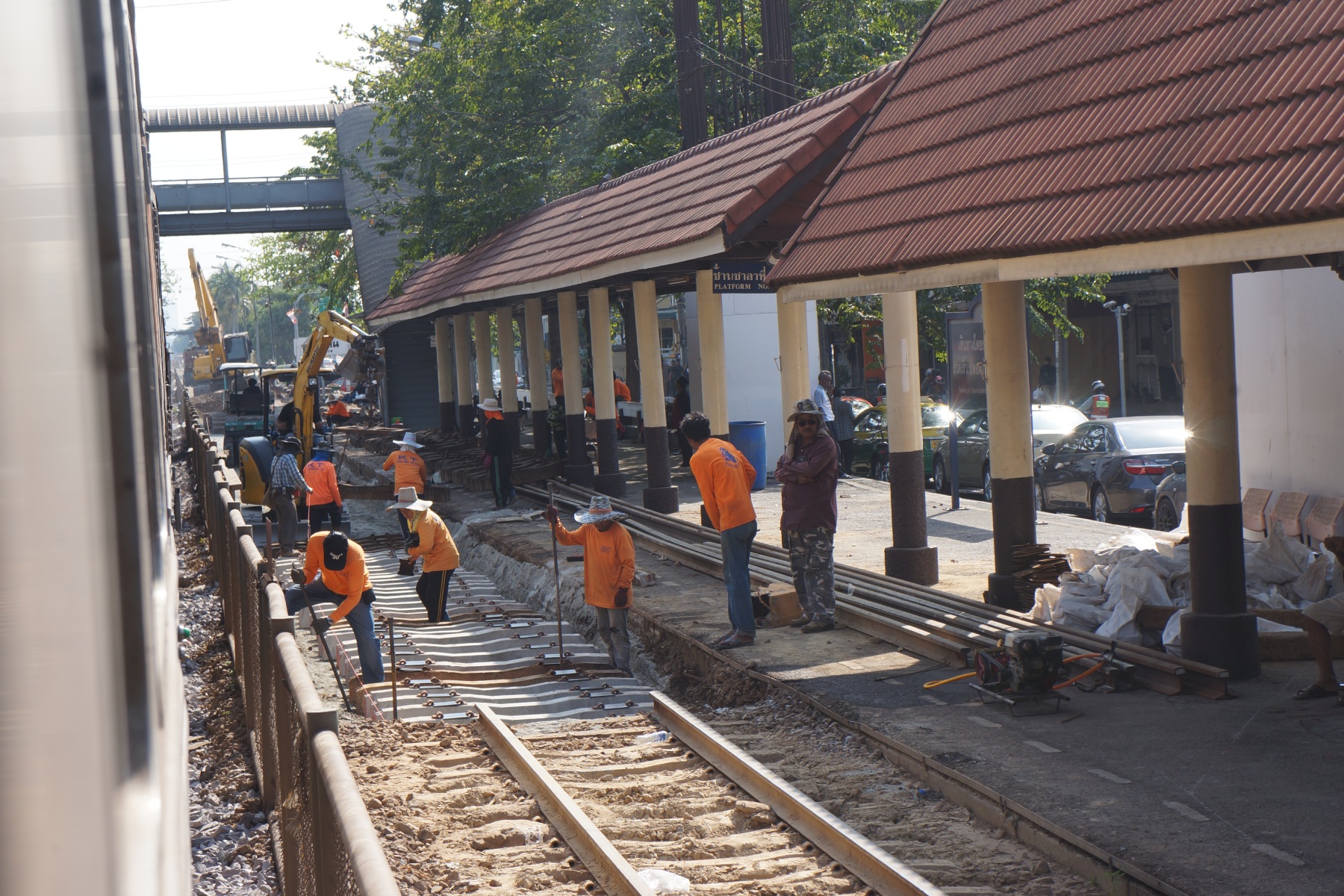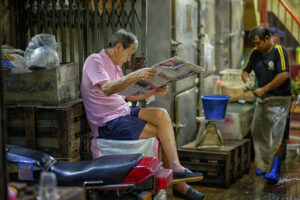Thailand is well-known for its stunning beaches, friendly locals, spicy food, and great weather, making it a magnet for expats. Many people choose to move here because of the low cost of living and incredible lifestyle.
However, there are some challenges to living in Thailand, such as getting a job, securing a suitable visa, and finding high-quality education for your children. But it can all be worthwhile, especially if you prioritize safety and friendliness over rigid efficiency.
Read on to find the answers to all your questions. From finding a house to starting your own business, we’ve got you covered:
- 1. What’s it really like to live in Thailand as an expat?
- 2. Cost of living in Thailand for expats
- 3. Is it easy for an international to find love in Thailand?
- 4. What should an expat know about working in Thailand?
- 5. Can an expat buy or rent Thai real estate?
- 6. What’s it like being a woman in Thailand?
- 7. Is Thailand a good place for expats to raise children?
- 8. Can internationals access Thailand’s healthcare system?
- 9. Are there any negatives about Thai life for an expat?
- 10. What is the best thing about living in Thailand as an expat?
SafetyWing
Stay protected worldwide with Nomad Insurance Complete from SafetyWing. This medical and travel insurance plan covers check-ups, mental health, maternity care, travel protection, and up to $1.5 million in emergency care in 170+ countries, including your home country. Sign up today and save 10% when you choose annual payment.
1. What’s it really like to live in Thailand as an expat?
When you think of Thailand, you probably first think of elephants and cocktails on the beach. While these things are definitely available, there’s much more to life as an international in this country.
Thai people are famous for their friendly demeanor. On arrival, you can expect your colleagues, and maybe even your landlord, to invite you for dinner and drinks. However, you’re more likely to be invited out to a restaurant or bar than to someone’s home. This is especially true of the younger generation, who often live in small condos that aren’t built for entertaining.

You’ll generally find people more willing to help you out than in many countries in the Global North. Whether your car has broken down or you’re lost in the middle of nowhere, people will go out of their way to help you, despite the language barrier. This warmth and helpfulness is one of the many reasons people fall in love with Thailand.
However, Thailand is not a classless society. Internationals usually have more in common with members of the middle class who have traveled abroad and have higher levels of English. If you’re looking to build deeper friendships, these experiences can make it easier to connect.
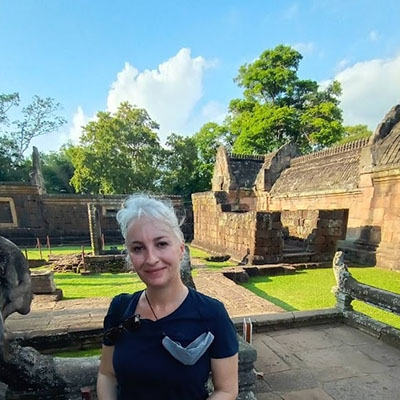
Local expert
Jane Evans
Insider tip
One point of warning – be very cautious when asking Thai people for their opinion on the monarchy. Better still, avoid asking about the royal family altogether!
The expat bubble
Despite Thai people’s friendly and open nature, some expats stick together in a foreign bubble. This tends to be the case in cities like Bangkok and Chiang Mai, or on the islands of Phuket and Koh Samui. However, if you live in a rural area, like Isan in the northeast, you will need to integrate more into the local community.
2. Cost of living in Thailand for expats
While official figures vary from under one million to nearly five million, it’s true that Thailand is home to many residents from abroad. One of the main reasons many people choose to move to the country is the cost of living. For many expats, life in Thailand is much more affordable than back home, with the average person spending a massive 47% less than in the United States.
As a result, Thailand is a particularly popular spot for digital nomads. In fact, Chiang Mai, in the north, is one of the world’s digital nomad capitals, where the average monthly cost of living, including rent, for a single person is just ฿30,000.

Living in Bangkok, a family of four could expect to spend just over ฿143,000 per month, including rent, while a single person living in a one-bedroom apartment is likely to spend about ฿48,000. These costs drop if you move out of the capital, with monthly rents in Pattaya being under ฿15,000 for a city-center one-bedroom apartment.
Utility bills in Thailand
Thai utilities are very affordable, although your final bill will depend on how often you turn on your air conditioning. If you live in a modern building, you might need to use it more than in a traditional Thai house built to stay naturally cool. On average, electricity and water cost around ฿2,400 for a two or three-bedroom apartment.
Standard of living for an expat in Thailand
These low living costs mean that most expats can live comfortably, even on the minimum wage for foreigners. Internationals must be paid ฿25,000–60,000 per month, apart from teachers and citizens of other Association of Southeast Asian Nations (ASEAN) countries.
While life in Thailand can be very affordable, there are plenty of opportunities to splurge. When it comes to eating out, you can spend as little as ฿40 on a tasty local dish or head to one of the country’s 35 Michelin-starred restaurants.
3. Is it easy for an international to find love in Thailand?
When it comes to dating in Thailand, there’s quite a strong gender divide, as heterosexual expat men and women tend to have very different experiences.
Dating as a foreign man in Thailand
There are many couples in Thailand consisting of a Thai wife and a foreign husband. The stereotype is that poorer Thai women see men from the Global North as a ‘meal ticket’ out of poverty. While some might feel there is some truth to this, it only accounts for a small percentage of couples who get married.
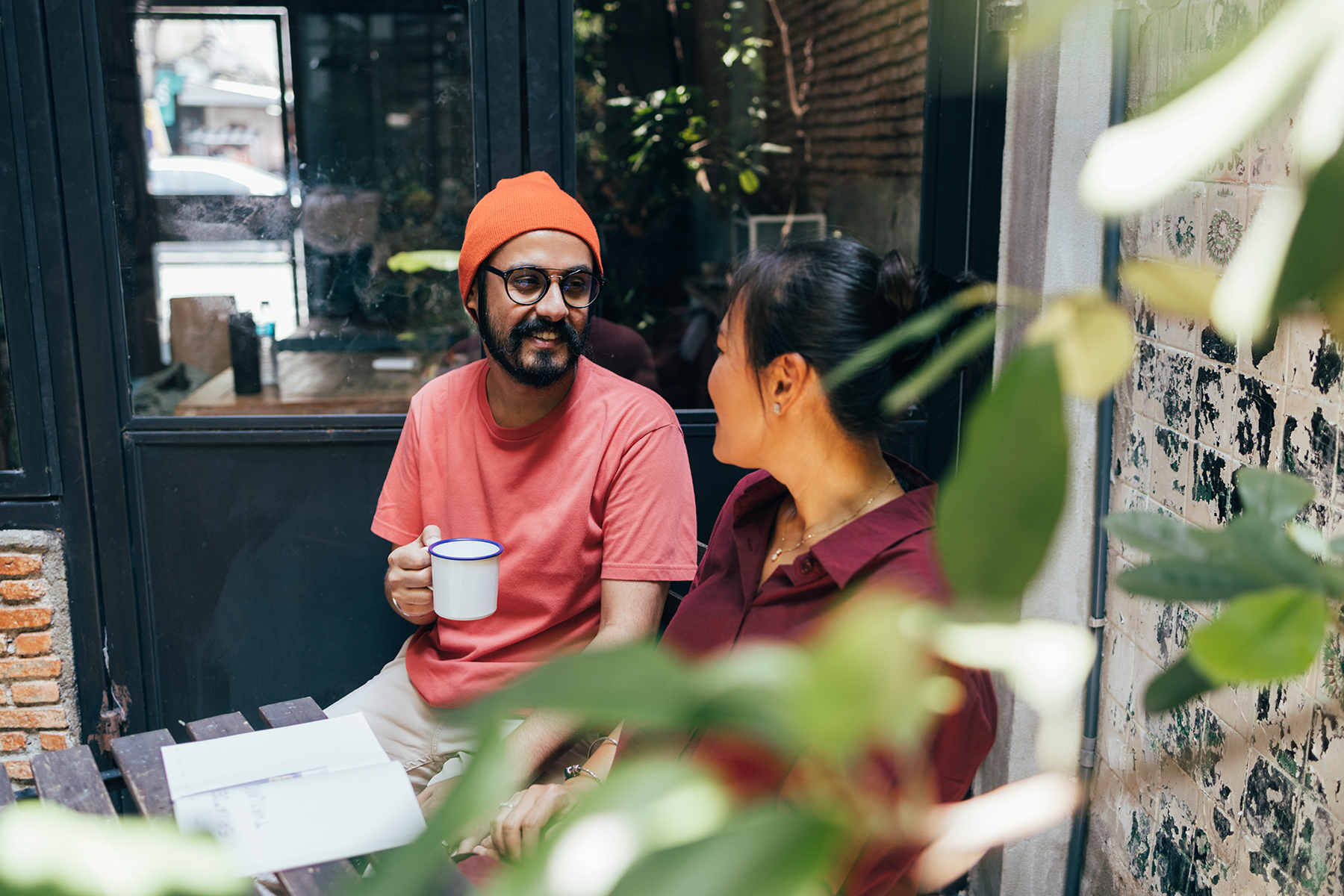
Additionally, some Thai women see men from their country as too traditional and prefer the more equal partnerships they imagine are possible with people from the Global North. Another factor could be Thai men’s reputation for cheating – one survey from back in 2012 put Thai men as the most unfaithful globally.
Dating as a foreign woman
This reputation for infidelity is one of the reasons why you might notice fewer foreign women dating Thai men. Foreign women can also find it harder to date expat men in Thailand, as many are looking for a Thai girlfriend. However, this is changing – more cross-cultural couples are getting together all the time.
LGBTQIA+ dating
Despite many people still having quite traditional values, Thailand is generally very LGBTQIA+ friendly, especially for foreigners. The country has a lively and vibrant LGBTQIA+ population, and larger cities usually have a few bars that cater to the community.
Although, on the surface, levels of LGBTQIA+ acceptance are high, some people still experience discrimination. This generally isn’t an issue in more global communities, but it’s important to be aware that it still exists.
Dating apps
Most main dating apps are available and fairly widely used in Thailand. These include Tinder, Bumble, and Grindr. There are also several local apps, including ThaiCupid and ThaiFriendly.
4. What should an expat know about working in Thailand?
The work culture in Thailand might be quite a shock to many newcomers. Workplaces are strongly hierarchical, and it’s improper to question your elders or superiors. International employers should be aware that Thai workers often wait for instructions from the boss rather than acting on their initiative.
Alongside hierarchy, the concept of ‘face’ is fundamental in both everyday and business culture. This means you shouldn’t embarrass someone by publicly pointing out an error, which can mean that problems often take longer to sort out than in other countries. As an expat in Thailand, this is an important and sometimes frustrating concept to learn early on.

However, the Thai workplace has many upsides. For example, it usually has a lively social scene –colleagues often eat lunch together and go out after work for food and drinks. The Thai concept of sanook (สนุก), or fun, is essential in the workplace, so it’s worth joining in.
While many international companies may do most of their business in English, Thai is still the official business language nationwide. Depending on where you work, learning some Thai could help build business and personal relationships. This is particularly true if you go out for drinks after work with your Thai colleagues. While they will try to be polite and include you in the conversations, people often revert to their first language after a few drinks.
Working hours and labor laws
Thailand isn’t known to have as much of a culture of overwork as many other Asian countries, but you may still be expected to work long hours during a busy time of year or with a big project. If this is the case, Thai labor law provides for maximum working hours and overtime payments, depending on your role.
However, for working-class locals, and other ASEAN nationals, work-life balance is not really a thing. You’ll find that many people working in lower-paid jobs work six days a week, and it’s not uncommon for people to work multiple jobs.
How to find a job in Thailand
Internationals have a few options when looking for work in Thailand. These include job listings, which you can find on several websites. Ajarn is a popular site for teaching jobs, while others, like JobsDB, have varied roles foreigners can apply for. Several large international and regional companies with offices in Bangkok, such as Agoda, Lazada, and Grab, hire foreigners.
Many internationals, excluding ASEAN neighbors, may find that their employment options are limited compared to their home country. Skilled jobs tend to be the main option, as there is a list of prohibited jobs for foreigners.
Working as a teacher is one of the most common occupations, whether teaching English at a Thai school or another subject at an international school. You’ll also find most jobs for expats, outside of teaching roles, will be based in Bangkok. While it’s possible to find employment in other areas, it can be more challenging.

As a newcomer, it’s a good idea to secure a job before coming to Thailand, as the visa and work permit process can be lengthy and usually requires you to visit a Thai embassy outside the country.
Becoming self-employed or running a business
Another option is to start your own business. There are a few routes into this which have different visa options:
- Internationals may start a business with a Thai partner owning 51%.
- If you are a US business owner, you may own 100% of a Thai company thanks to the Treaty of Amity.
- You can obtain a Foreign Business License (ใบอนุญาตประกอบธุรกิจของคนต่างด้าว) from the Department of Business Development (กรมพัฒนาธุรกิจการค้า) or a Foreign Business Certificate with Board of Investment (คณะกรรมการส่งเสริมการลงทุน) certification.
Most foreign-owned businesses need to employ a certain number of Thai staff and have enough registered capital to secure a work permit for a foreign employee.
Working as a freelancer is trickier and somewhat of a grey area. Although immigration often overlooks this, especially if you don’t work with any Thai clients or businesses, it is technically illegal to work remotely as a freelancer without a work permit.
5. Can an expat buy or rent Thai real estate?
When you move to Thailand, you will find a huge choice of properties, from luxurious pool villas to affordable studio condos. However, purchasing a property can be tricky, and most people opt to rent, at least at first.
Luckily, renting property in Thailand is very straightforward, and you won’t have to go through rigorous credit and reference checks like in many other countries. In areas popular with foreigners, you can find English-speaking agents to help you find a property.
Expect to pay one or two months’ rent as a deposit, plus the first month’s rent. As long as you leave the property in good condition, you should get your deposit back, minus a cleaning fee.
As a foreigner, you can buy a condo relatively easily. However, buildings have quotas for foreign ownership, so you’ll need to find a property within this limit. In addition, condos are relatively affordable – in Central Bangkok, you’ll pay around ฿195,000 per square meter, and in the popular beach area of Phuket, prices are about ฿110,000 per square meter.
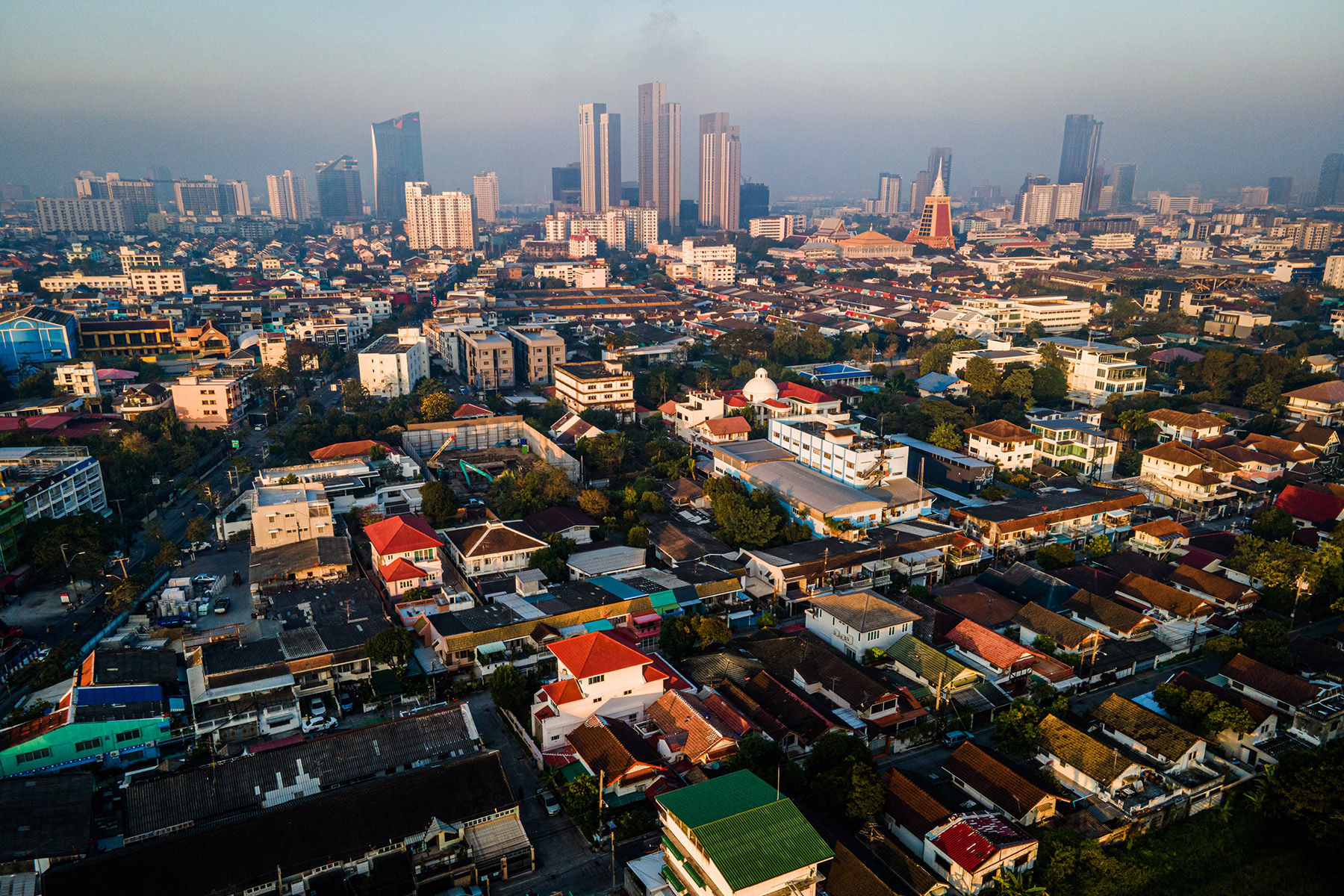
Meanwhile, buying a house and land is very difficult for expats. However, many people get around this issue by putting land in their Thai spouse’s name or purchasing it through their company.
Getting a mortgage in Thailand is possible but not easy. You will need a work visa and permit, a marriage visa, or permanent residency.
6. What’s it like being a woman in Thailand?
By many metrics, Thailand is a good country to be a woman. It has strong equal rights laws and higher levels of women in senior leadership roles than the global average. However, these levels of equality mostly benefit the middle and upper class, while poorer women across the country still experience discrimination and exploitation.
While nowhere is 100% free from danger, Thailand is a relatively safe country for foreign women to travel and live in. In day-to-day life, you will experience very low rates of harassment from strangers. However, levels of domestic violence and sexual abuse are shockingly high, particularly among marginalized populations.

Local expert
Jane Evans
Insider tip
If you are a single woman in Thailand, it is worth avoiding sparsely populated areas. While you are likely safe, being unaccompanied at night and traveling alone to remote places can be risky. For example, hiking to a waterfall or wandering along secluded coastal areas alone is not recommended.
Dress standards are pretty relaxed in Thailand, apart from in a couple of instances. In temples, you should cover your shoulders and knees. It’s also a good idea to dress smartly and conservatively when you visit government and immigration offices.
Healthcare in general, including women’s healthcare, is generally of a high standard. You’ll find all major hospitals and clinics have gynecological care, including for pregnancy. Rates for cesarian sections are similar to the US at around 32%.
However, abortions were only recently decriminalized, and some women can find it difficult to obtain one. Fortunately, many private clinics and hospitals now offer them for a price. The Planned Parenthood Association of Thailand (สมาคมวางแผนครอบครัวแห่งประเทศไทย) is available for abortion and counseling services.
Is there a gender pay gap?
Thailand is also a good place for women to work. Women are fairly evenly represented across different pay levels and earn slightly more (PDF) than their male counterparts. However, women are still underrepresented in the workforce, although to a lesser extent than in many other countries.
7. Is Thailand a good place for expats to raise children?
If you have the money to pay for an international school, Thailand can be a wonderful place to raise children. With its relaxed pace of life and outdoor lifestyle, it can be an idyllic place for children to grow up.
While foreign children are allowed to attend Thai public schools, unlike Thai nationals, they must pay tuition fees. Public schools are often not of a high standard, so many Thai families pay for private school if they can afford it. Additionally, the language barrier means that, for most expats, public schools are not a viable option.
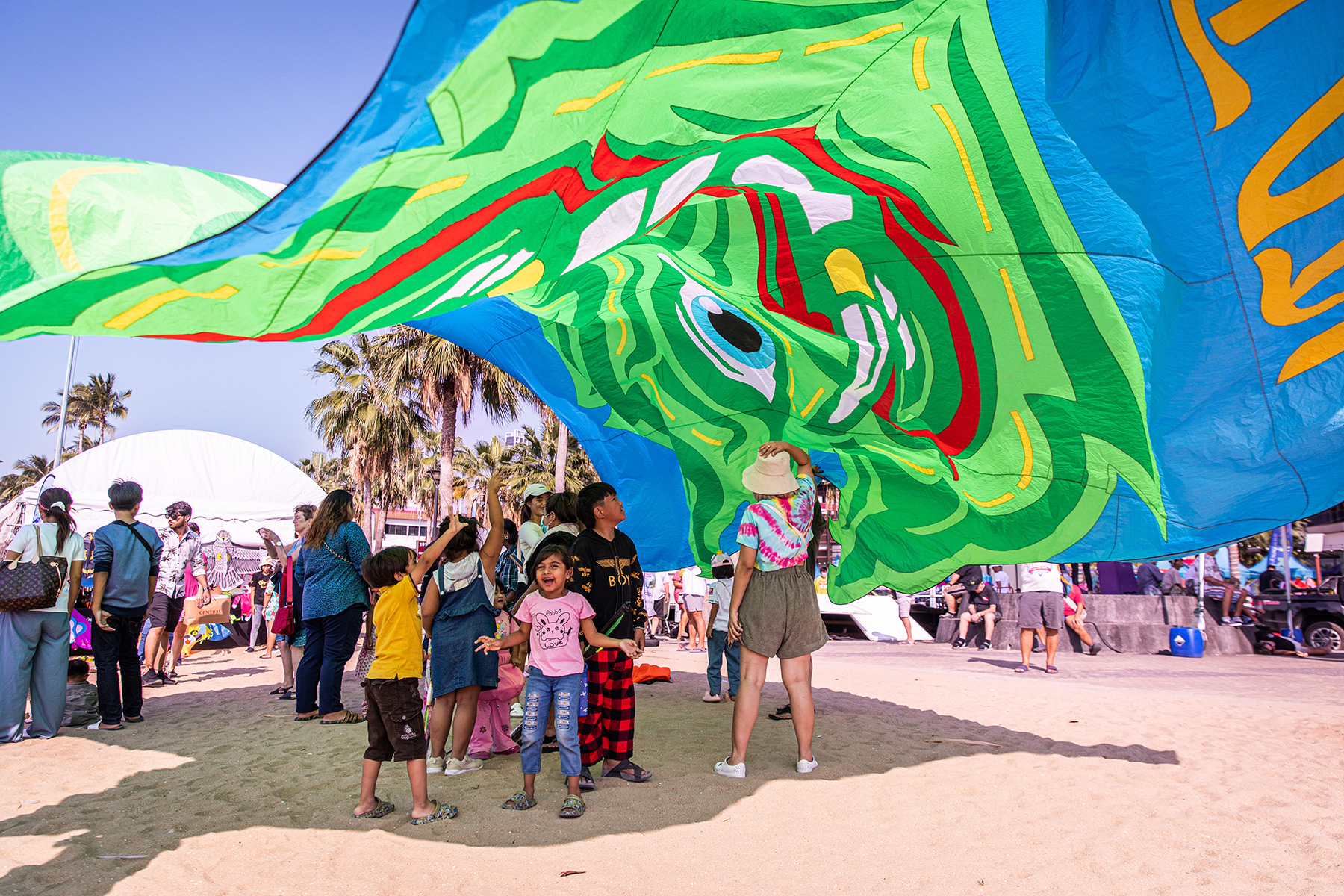
Most major population centers will have a good selection of international schools of varying levels of quality. The higher ranked the school, the more expensive the fees, ranging from ฿80,000 to ฿1 million a year. Negotiating school fees as part of your employment package can, therefore, be worthwhile.
In recent years, many more Asian expats have been moving to Thailand with their families, especially from China. So while the lingua franca at a school may be English, the language on the playground might be Chinese. It’s definitely worth finding out which languages are most common at prospective schools to ensure your child can communicate with other students.
If you live in a more rural area, international schools may be hard to find. As a result, many people find homeschooling to be a popular option.
Childcare
Private childcare is quite easy to come by in Thailand. Nannies are a popular choice for younger children. Fortunately, hiring a nanny in Thailand is much cheaper than in many other countries. You can expect to pay between ฿15,000 and ฿20,000 per month for a live-in nanny.
One thing that many parents comment on, when moving from countries in the Global North, is the lack of public amenities. While there are a few public parks in Thai cities, they are much less common than in Europe or America. However, in areas with lots of expat families, you will often find private play areas attached to restaurants.
If you pay into social security in Thailand, you are eligible for a child allowance of ฿800 per month. For most expat families, the hassle of the paperwork and claims process means they don’t bother applying for it.
8. Can internationals access Thailand’s healthcare system?
The Thai healthcare system is reasonably comprehensive. If your company pays social security contributions, you will be entitled to free treatment at a nominated social security hospital. When you sign up for the scheme, you can select your hospital from nearby participating hospitals. It’s a good idea to ask your colleagues for recommendations, as the quality of social security hospitals can vary.
Treatment at social security hospitals may be slightly more chaotic and slower than at an international hospital, but generally, the standard of care is very good. Doctors can generally speak English, as do many nurses. More expensive medications may not be available through social security, so many expats also have a private health insurance policy as their main cover or as a backup.
9. Are there any negatives about Thai life for an expat?
While Thailand may seem like a tropical paradise, there are some things to be aware of as an outsider. These include:
- The political situation: Things have been strained for many years since the coup d’etat in 2014. Questions around the 2023 election have also led to frayed nerves and protests. However, if you avoid demonstration sites, you will unlikely be too badly affected by the political situation.
- Thailand’s strict lese majeste law: Forbids residents from insulting the monarchy (สถาบันกษัตริย์). Therefore, it’s a good idea to avoid the topic altogether.
- The weather: Thailand’s climate is quite hot year-round. However, you’ll find the hottest months of the year are March to June, with temperatures in April and May often reaching over 40°C.
- Air pollution: Many expats relocate to the south of the country for a few months between February and May, when air pollution is at its height.

Local expert
Jane Evans
Insider tip
Politics is a deeply divisive topic in Thailand, so it is important to broach it cautiously and with cultural sensitivity in conversation, if at all.
Finally, Thailand is also not a good country to have a physical disability. However, this is not down to overt discrimination but a lack of access and accommodations. Sidewalks are uneven and often have poles in the middle, and many places are only accessible by stairs. Accessible bathrooms (ห้องน้ำสำหรับผู้พิการ) are also difficult to find outside of large malls and hotels.
10. What is the best thing about living in Thailand as an expat?
A couple of important words that newcomers to Thailand should learn as quickly as possible are sabai sabai (สบายสบาย) and sanook (สนุก). These concepts are some of the main reasons people stay in Thailand for so long.
Sabai roughly translates to feeling comfortable, happy, fine, relaxed, and well. And when you say the word twice, it emphasizes the meaning. People can use it to say they’re feeling good or to describe a place. Sabai sabai can also be an attitude or state of being that is prized in Thailand.
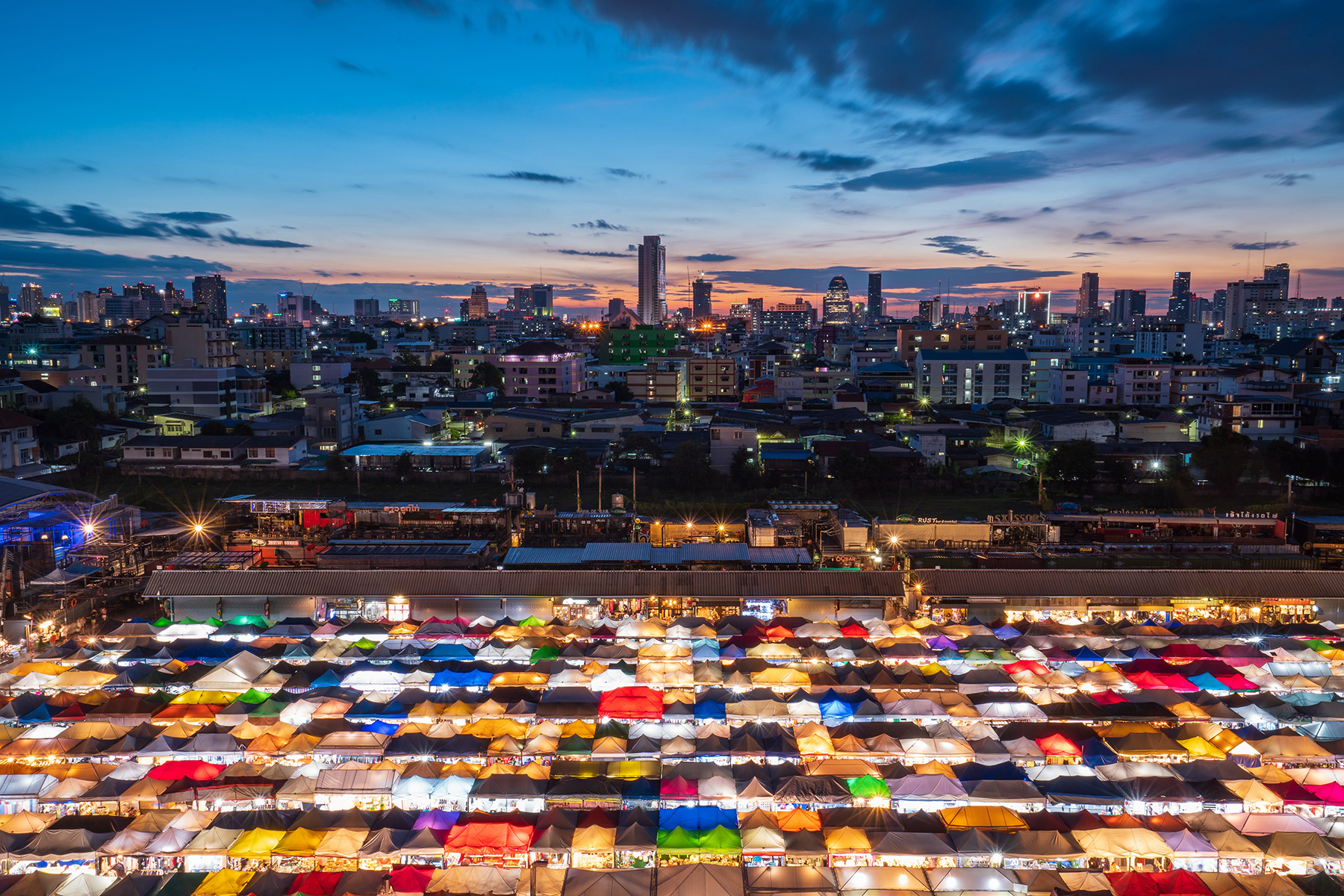
Sanook, or fun, is another essential concept. If you’re teaching and your lesson is too dull, your students might complain that you’re not being sanook enough. Even in the workplace, fun is important. People in Thailand really like to enjoy food and each other’s company.
And speaking of food – if you enjoy fresh, vibrant spicy food, Thailand is the country for you. The variety of delicious dishes you’ll find here far outstrips the selection at a Thai restaurant back home.
Finally, an article about Thailand wouldn’t be complete without mentioning its white sandy beaches, verdant green jungle, and majestic elephants. The country’s nature is stunning, and even after many years living there, most internationals still have so much more to explore and discover.


